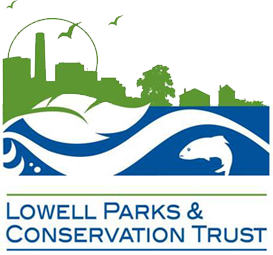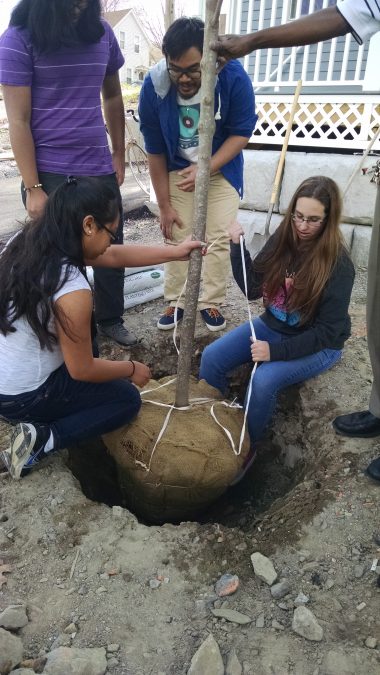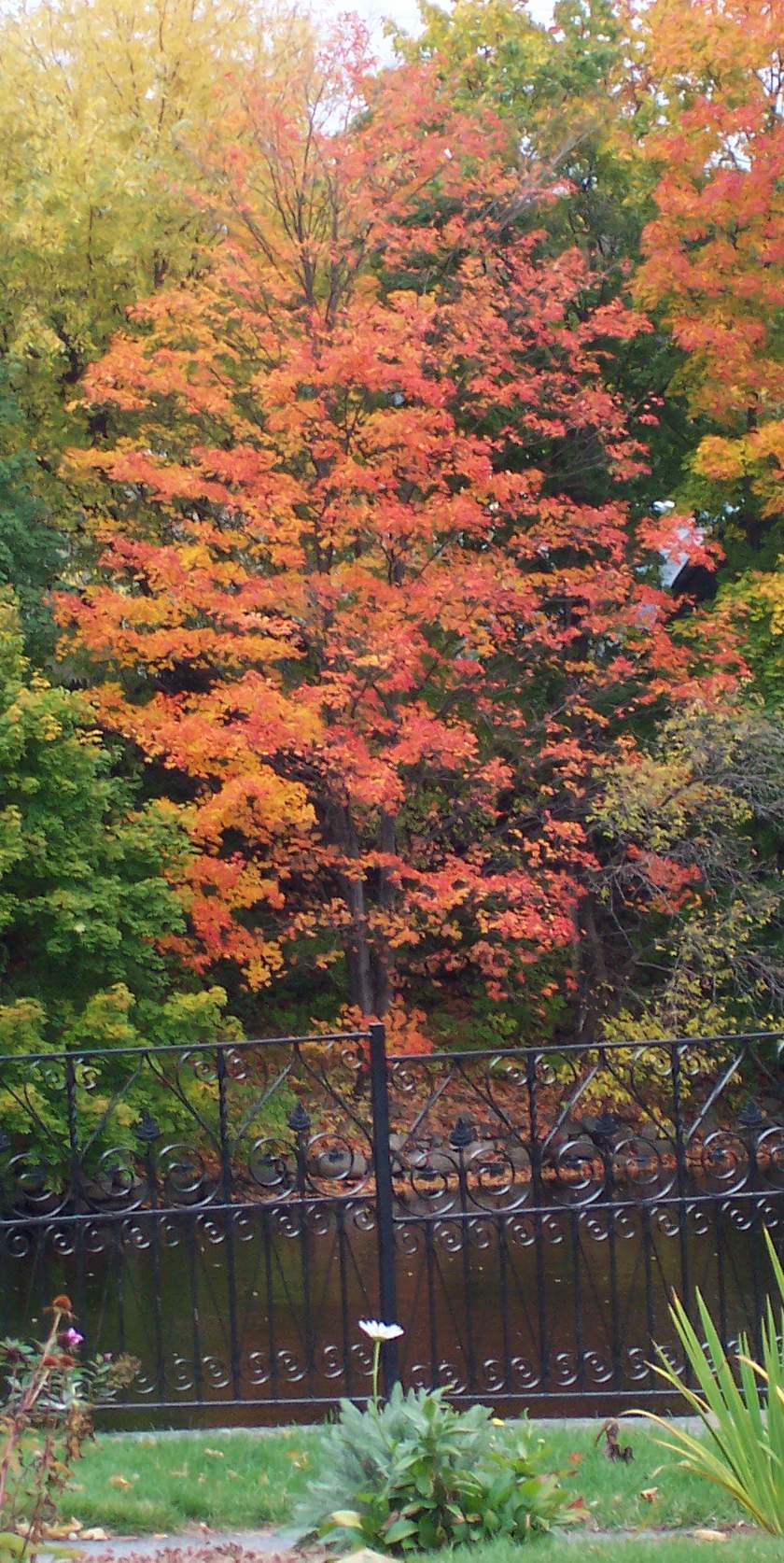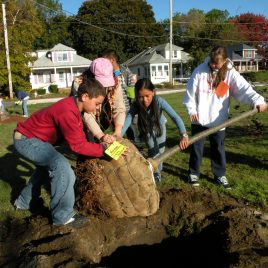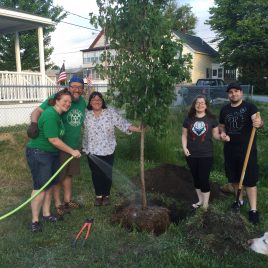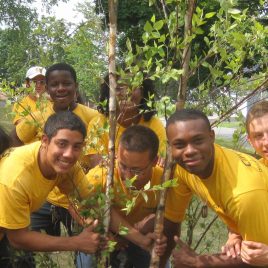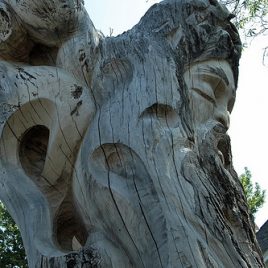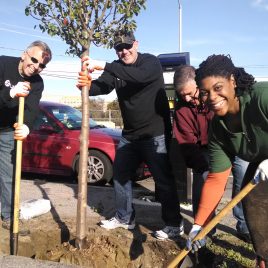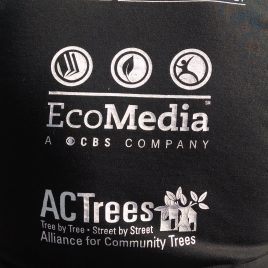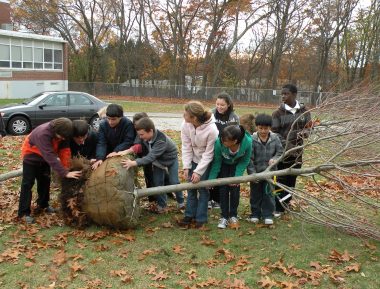Urban Forestry
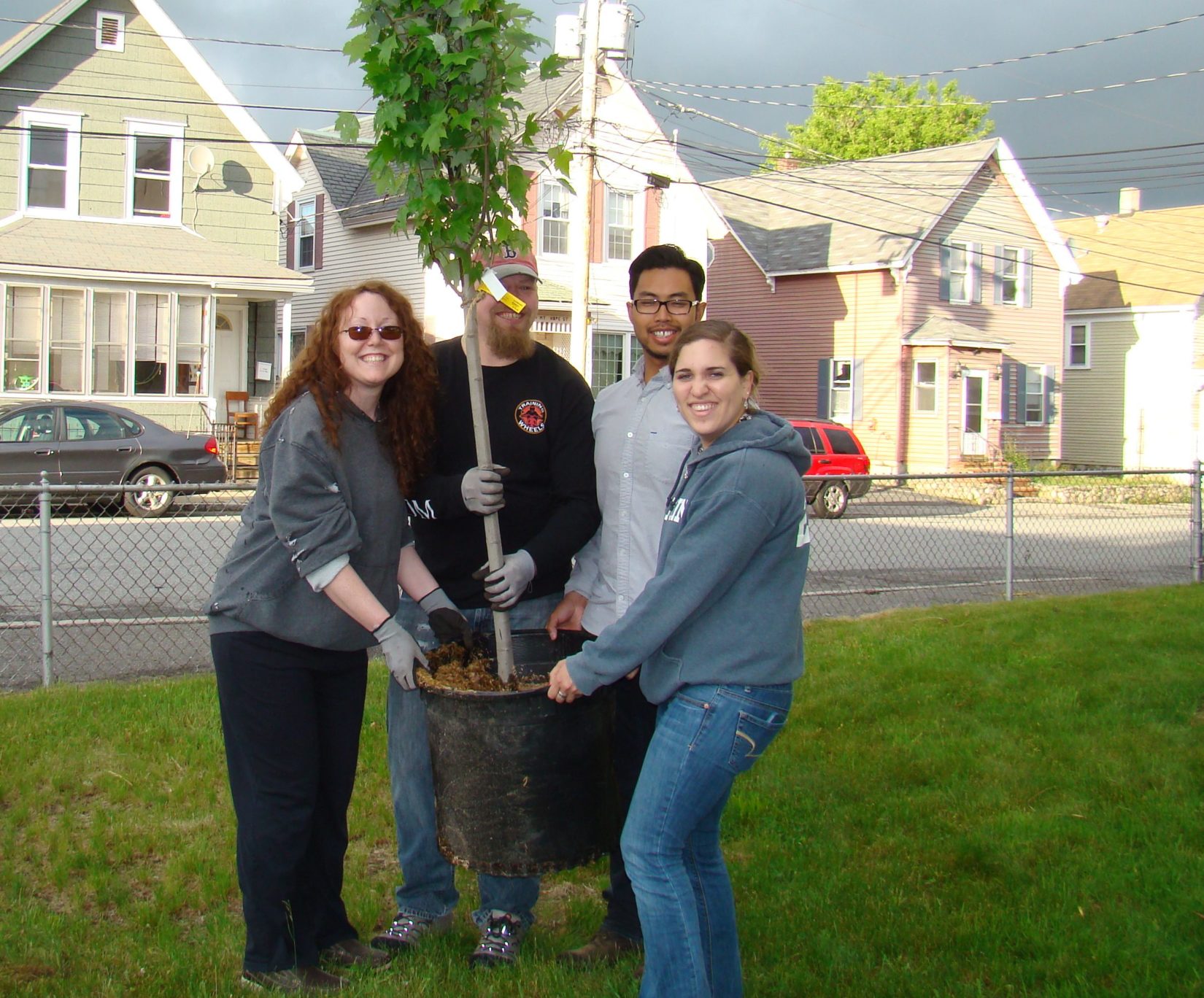
First time homeowner tree planting program, in partnership with Merrimack Valley Housing Partnership.
Trees Need People and People Need Trees
Lowell’s urban forestry canopy extends from the downtown to the city’s neighborhoods and out to the state forest.
Trees on your street contribute to your quality of life by improving the streetscape, the quality of the air you breathe, reducing heating and cooling costs, calming traffic speeds, and increasing property values.
Every year the Lowell Parks & Conservation Trust plants 150-200 large-caliper (2-3″) trees throughout the city with a variety of partners, including city agencies, local non-profits, neighborhoods, and businesses.
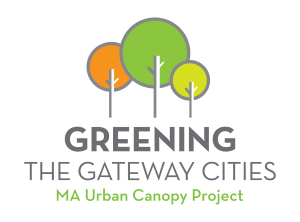 Greening the Gateway City
Greening the Gateway City
Greening the Gateway City is a tree planting program that’s focused on getting trees into the neighborhoods where they are most needed, in order to increase the city’s tree canopy. Greening the Gateway City is offered in partnership with the City of Lowell and MA Dept. of Conservation. You may be eligible for a FREE TREE if you live in this zone. More information about this program.
Where would you like to see more trees?
If you have an idea for a tree planting project in your neighborhood, at a local school, or at your favorite park, please contact us.
We prioritize projects that provide broad public benefit over individual tree plantings on sidewalks. The demand for our assistance is too high to typically meet individual homeowner tree requests, but we do keep a running list of sites in case we get several requests on one street.
Recent Tree Planting Sites/Partners
Each year, the Trust applies competitively for support for tree planting through the City of Lowell’s federally-funded Community Development Block Grant (CDBG) Program. Our recent tree planting projects have included:
-
House of Hope
-
Shaughnessy School
-
UMass Lowell athletic fields
-
Coalition for a Better Acre
-
Tyler Park
-
Market St. Garage
-
MVHP First-time Homebuyers
-
Downtown street trees
